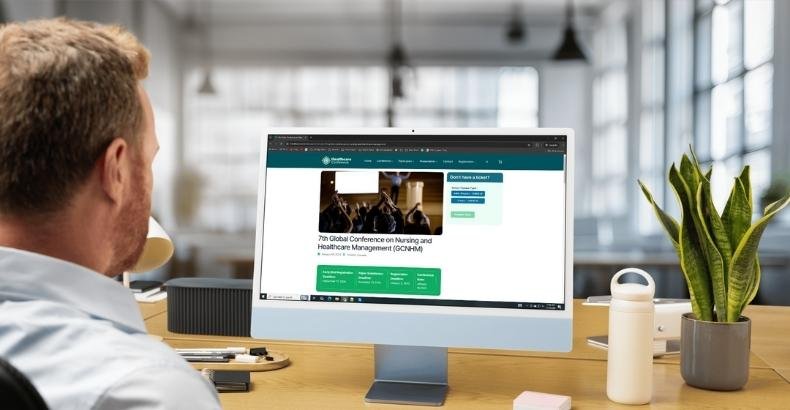Healthcare conferences bring together professionals from various fields to discuss current trends, innovations, and practices. These events are essential for creating collaboration and sharing knowledge among attendees. Now you might be wondering: What is the agenda for a healthcare conference?
Typically, the agenda includes keynote speeches, panel discussions, and breakout sessions. These components are designed to cover a wide range of topics relevant to the healthcare sector. Attendees can expect to engage with industry leaders and gain insights into new research, technologies, and best practices.
Are you curious about what goes into planning such an agenda? This article will provide you with all the necessary details, ensuring you grasp the importance and structure of a healthcare conference agenda.
Why Attend an International Healthcare Conference?
Attending an international healthcare conference offers numerous benefits for professionals in the field. These events create opportunities to connect with industry leaders, share knowledge, and explore innovative practices. Healthcare conferences support networking opportunities, allowing participants to meet peers and potential collaborators.
Engaging with others in the field can lead to partnerships that ensure professional growth. For example, participating in international healthcare conferences in Canada provides professionals with valuable insights into the latest trends and practices in the field. Many conferences in Canada feature expert speakers who share their knowledge and experiences, enriching the learning experience for all attendees.
So, international healthcare conferences often present hands-on workshops and interactive sessions, allowing attendees to apply what they learn. The combination of expert insights, networking opportunities, and practical learning makes attending international healthcare conferences an invaluable experience for professionals dedicated to improving their practice.
What is the Agenda for a Healthcare Conference?
The agenda for a healthcare conference is a detailed outline of the event’s schedule. It provides attendees with crucial information about what to expect during the conference, helping them plan their participation accordingly. Here’s a look at what you can typically find on a healthcare conference agenda.

Keynote Sessions
Keynote sessions are often the highlight of the agenda. They feature prominent speakers who share insights on pressing issues in healthcare. These sessions usually set the tone for the conference and provide valuable context for the discussions that will follow. Attendees can expect to engage with influential leaders and gain perspectives on the latest trends and innovations in the industry.
Breakout Sessions
Breakout sessions are smaller, focused discussions on specific topics. These sessions allow for more interactive learning and often include workshops or hands-on activities. Participants can choose sessions that align with their interests and professional goals. Engaging in these smaller groups can promote deeper discussions and networking opportunities.
Panel Discussions
Panel discussions feature a group of experts discussing relevant healthcare topics. These sessions often allow for audience participation, enabling attendees to ask questions and engage with the panelists. The format encourages a dynamic exchange of ideas and diverse perspectives on various issues. Participants can gain a complete knowledge of complex topics from different angles.
Networking Opportunities
Networking opportunities are an integral part of the agenda. Conferences often include designated times for attendees to connect with one another. These informal gatherings allow for relationship building and collaboration. Engaging with peers can lead to valuable professional connections that extend beyond the conference.
Workshops
Workshops provide hands-on learning experiences. They often focus on specific skills or practices relevant to healthcare professionals. Participants can expect to engage in interactive exercises and case studies. These sessions are designed to equip attendees with practical tools they can apply in their work.
Closing Remarks
At the end of the conference, closing remarks often summarize the key takeaways from the event. This is a chance to reflect on what was learned and how it can be applied in practice. Attendees are encouraged to share their thoughts and insights, creating a collaborative atmosphere.
Additional Activities
Conferences may also include additional activities such as wellness sessions, social events, or special interest group meetings. These activities can improve the overall experience, allowing attendees to relax and connect in a less formal setting. Participating in these additional events can provide further networking opportunities and enrich your conference experience.
The agenda for a healthcare conference provides a structured overview of the event, detailing the various sessions that cater to attendees’ diverse interests. Each type of session is designed to fulfill the purpose of health care conference by promoting learning, collaboration, and networking among participants.
What to Expect From Different Sessions in the Agenda
To maximize your experience at a healthcare conference, you need to understand the different session types. Each session is designed to provide valuable insights and promote meaningful discussions among participants. Here’s a closer look at what you can anticipate from the various sessions available at the conference.

Keynote Sessions
Keynote sessions feature industry leaders sharing their insights and expertise. These presentations usually cover significant topics relevant to the healthcare sector. Attendees can gain high-level overviews of emerging trends and crucial issues. Engaging with the speaker during and after the session can provide valuable perspectives on the future of healthcare.
Breakout Sessions
Breakout sessions provide a more intimate setting for discussion and learning. These smaller groups often focus on specific themes or topics. Attendees can participate in hands-on activities or workshops, enhancing their learning experience. The interactive nature of these sessions allows for deeper engagement with the content and other participants.
Panel Discussions
Panel discussions allow for multiple experts to share their perspectives on a topic. These sessions encourage dialogue among panelists and interaction with the audience. Attendees can ask questions and explore different viewpoints. Engaging in these discussions encourages a broader perspective of complex issues in healthcare.
Networking Opportunities
Networking opportunities are sprinkled throughout the agenda. These moments allow attendees to connect and build relationships with peers. Engaging in conversations during breaks or designated networking events is vital for establishing valuable connections. Be proactive in introducing yourself and discussing shared interests.
Workshops
Workshops are practical sessions designed to teach specific skills or concepts. Participants can expect hands-on activities that boost their learning. These interactive experiences allow attendees to practice new techniques or strategies in real-time. Workshops are excellent for gaining practical knowledge that can be applied in the workplace.
Social Events
Many conferences include social events to facilitate informal networking. These gatherings provide a relaxed atmosphere for attendees to connect. Engaging in conversation over meals or during social hours can lead to valuable relationships. Don’t miss these opportunities to network in a more casual setting.
Benefits of Attending a Healthcare Conference
Attending a healthcare conference can be an exciting opportunity for growth and learning. These events bring together professionals from various fields to share knowledge, insights, and experiences. Here are some key advantages you can look forward to when participating in a healthcare conference.
Networking Opportunities
Networking at conferences allows professionals to connect with peers and industry leaders. These interactions can lead to collaborations, mentorships, and new job opportunities. Building relationships within the healthcare community is essential for professional growth.
Knowledge Acquisition
Conferences provide a platform for learning about the latest research and advancements. Attendees gain insights from experts and engage in discussions on relevant topics. This exposure to new ideas enhances professional development and practice.
Skill Development
Many conferences offer workshops that focus on practical skills. Participants can learn new techniques and strategies that can be implemented in their work. Developing these skills is crucial for staying current in the ever-evolving healthcare field.
Exposure to Innovations
Healthcare conferences often showcase the latest technologies and innovations. Attendees can learn about new tools that can upgrade patient care and improve outcomes. Staying informed about advancements is vital for providing quality healthcare.
Professional Recognition
Attending conferences can increase your professional reputation. Being involved in the healthcare community demonstrates a commitment to your field. Participation can lead to recognition and opportunities for advancement in your career.
Continuing Education Credits
Many conferences offer continuing education credits for attendance. This can be beneficial for maintaining licenses or certifications. Engaging in lifelong learning is essential for professional development in healthcare.
How to Attend an International Healthcare Conference?
You can expand your professional knowledge and network by attending an international healthcare conference. Proper planning is essential to ensure a smooth experience. Below are key steps to help you successfully navigate the process.

Research Conferences
Begin by researching upcoming international healthcare conferences relevant to your field. Use online resources, such as conference directories and professional organizations, to identify suitable events. Pay attention to conference themes, speakers, and session topics to ensure alignment with your interests and goals.
Register Early
Once you’ve identified a conference, you have to register for a Canadian healthcare conference as early as possible to take advantage of discounted rates. Many conferences offer early bird registration prices that can significantly reduce costs. Early registration also allows you to secure your spot and gain access to any special pre-conference events.
Prepare Travel Arrangements
After registering, start making travel arrangements. Book your flights or other transportation early to secure the best rates. Also, consider your accommodation options and make reservations as soon as possible, especially if the conference is in a popular location.
Review the Agenda
Once the conference agenda is available, review it thoroughly. Identify the sessions, workshops, and networking opportunities that interest you. Mark your calendar with the events you plan to attend, ensuring you maximize your time at the conference.
Plan Networking Strategies
Networking is a key component of conference attendance. Prepare an elevator pitch to introduce yourself to new connections. Bring business cards to exchange with other attendees, and consider setting specific networking goals for the event.
Engage Actively
During the conference, actively engage in sessions and discussions. Ask questions, participate in workshops, and connect with speakers. Engaging with others improves your learning experience and promotes valuable connections.
Frequently Asked Questions
This section addresses common questions about healthcare conference agendas. The following FAQs can help you get the most out of your conference experience. Let’s explore the most frequently asked questions to provide clarity and insight.
What Is the Importance of a Healthcare Conference Agenda?
A healthcare conference agenda outlines the schedule and topics covered during the event. It helps attendees plan their time effectively and ensures they do not miss important sessions. A well-organized agenda improves the overall conference experience.
How Do I Read a Healthcare Conference Agenda?
Reading a healthcare conference agenda involves knowing the layout and session details. Look for session titles, descriptions, and the names of speakers. Familiarize yourself with the timing and locations of each event to plan your participation.
Can I Change My Agenda During the Conference?
Most conferences allow for flexibility in attending sessions. If you find a different session that interests you, you can typically switch your plans. However, be mindful of any pre-registration requirements for specific workshops or activities.
How Do I Access the Conference Agenda?
The conference agenda is usually available on the official conference website. Many organizers also provide printed copies upon registration. Check your email for any updates or changes to the agenda leading up to the event.
Are There Networking Opportunities in the Agenda?
Yes, healthcare conference agendas often include dedicated networking events. These sessions are designed for attendees to connect and engage with one another. Participating in these opportunities is essential for building professional relationships.
Final Thought
Attending a healthcare conference can be a transformative experience for professionals in the field. These events provide a platform for learning, networking, and collaboration among healthcare experts. With a well-structured agenda, participants can maximize their time and gain valuable insights that upgrade their practice.
So, what is the agenda for a healthcare conference? The agenda typically includes keynote speeches, breakout sessions, panel discussions, and networking opportunities. Each component is designed to facilitate learning and engagement, allowing attendees to dive deep into relevant topics and connect with peers.

Leave a Reply